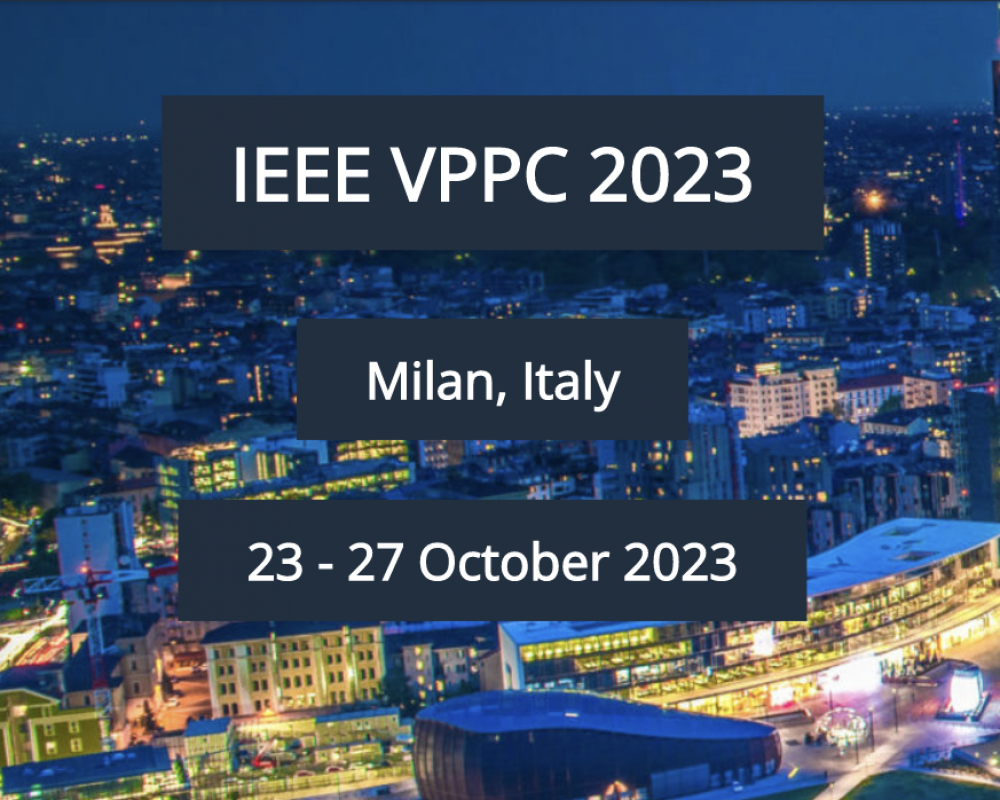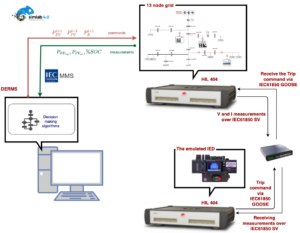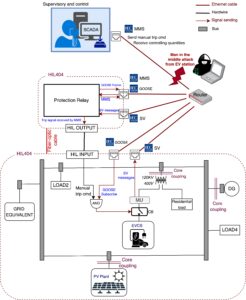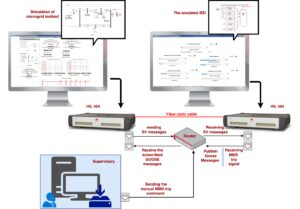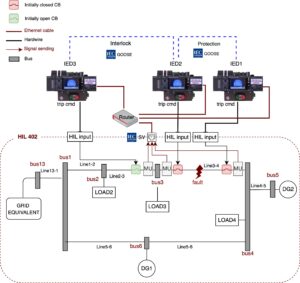Overview
The laboratory is involved in the digital transformation and modeling of traditional electrical systems integrated with their digital component. The heart of the laboratory’s activities is the realization of Digital Twins of electrical systems using mixed techniques of Hardware in The Loop simulation in order to validate the behavior of electrical architectures integrated with digital systems of supervision, automation and data collection. In particular, the activities of the laboratory are related to the implementation of “4.0 enabling technologies” for complex electrical systems.
Latest News
Research Team
Professors

Giambattista Gruosso
Associate Professor – Head of laboratory
giambattista.gruosso@polimi.it

Giancarlo Storti Gajani
Associate Professor
giancarlo.stortigajani@polimi.it

Paolo Maffezzoni
Full Professor
paolo.maffezzoni@polimi.it

Diaz Londono Cesar
Assistant Professor

Marziyeh Hemmati
Assistant researcher
PhD Students

Harshavardhan Palahalli

Enrico Spateri

Federico Rossi
Projects
This work presents an optimal distributed energy resource management system for a given smart grid connected to photovoltaics, battery energy storage, and an electric vehicle aggregator. These management systems are one of the crucial factors to control the power converters connected to the grid to optimize the power generated by the RES. The proposed management system includes the communication architecture necessary for acknowledging the information flow between the individual control of the distributed generators and the master supervisory control algorithm. The work was carried out on two levels. the first is to design a control strategy for energy management and validate it with the grid in real-time hardware-in-the-loop simulation integrating the IEC61850 communication layer and physically intelligent electronic devices. The second is to analyze the vulnerabilities of the designed methodology for cybersecurity threats explicitly with the extension of IEC61850 to electric vehicle aggregators for communication with the master energy management.
This project aims to study vulnerabilities in IEC61850 standard MMS protocol widely used in supervisory level of smart grids. A Hardware-in-the-loop testbed setup is designed to investigate cyber-attack vulnerabilities by studying the application of MMS servers in Intelligent Electronic Devices (IEDs). The built-in communication protocols in Typhoon HIL are used instead of conventional co-simulations to study the performance and cyber vulnerabilities of this protocol in a more realistic architecture. A series of data injection attacks are performed on the testbed, first by sniffing the local network and capturing and monitoring the pockets. Then, spoofed data with the same structure are injected into the network to conduct false data injection attacks on the supervisory unit. Vulnerability to cyber-attacks of the IEC61850 protocol in specific situations is proved during this study.
In this project, one particular architecture to inspect Generic Object-Oriented Substation Event (GOOSE) services is proposed. There are two steps for developing the model design for this study. The former resides in the design details of an assumed micro-grid simulation including the communication layer in three levels: supervisory, substation, and the process bus. The latter is, recreating the characteristics of a generic IED running on a real-time simulator device to be used instead of a physical IED. One particular overload scenario is conducted to investigate the performance of the protection mechanisms and IEC61850 services emulated in the IED and the real-time microgrid.
This work includes the hardware-in-the-loop (HIL) simulation methodology of the smart grid including the physical IEC61850 communication network layer using Intelligent electronic devices of circuit breakers. This study recreates a given substation using built-in IEC61850 protocols such as GOOSE messages, SV messages, and MMS server, and the performance is investigated inside the real-time simulation boundaries. The unique aspect of this work is the logic implementation among the protection devices tested with real communication delays over the protocol that can occur between them, and these results are more realistic corresponding to real-world scenarios.
Featured Publications
Giambattista Gruosso
Cesar Diaz-Londono
https://orcid.org/0000-0003-3655-0998
Marziyeh Hemmati
https://orcid.org/0000-0002-0545-2669
Thesis
Proposal for Thesis
Electric Vehicle charging strategies evaluation and its effects on the electrical grid operation.
Study course: Automation Engineering, Electrical Engineering, Electronics Engineering
Description:
Electric vehicle (EV) aggregators are looking to increase their profits by operating the EV energy consumption based on energy prices and, in some cases, ignoring the electrical grid impact. Therefore, this thesis aims to assess different EV aggregator strategies already drawn and evaluate them on an electrical grid to evaluate the effects of reverse power flow phase unbalance, among others. This research will analyze the benefits and drawbacks of the strategies by considering typical EV charging behaviors.
Flexibility capacity analysis of an electric vehicle charging station when providing energy balancing services
Study course: Automation Engineering, Electrical Engineering, Electronics Engineering, Computer Science and Engineering
Description:
Electric vehicles (EV) are used as flexible loads capable of providing energy services to the electrical grid. However, this flexibility capacity is difficult to predict in a time horizon due to the EV user’s uncertain behavior and a possible previous flexibility provision. Therefore, the thesis aims to create different scenarios for providing balancing services by considering typical EV charging connection times. An aggregator should manage the chargers power profiles.
Metodi matematici per la modellistica dell'incertezza nelle reti elettriche in presenza di carichi non lineari e veicoli elettrici.
Study course: Automation Engineering, Electrical Engineering, Electronics Engineering
Tiny Machine learning per modellistica di stato di salute di batterie e pianificazione dei carichi in dispositivi elettronici- Tiny Machine learning for battery health modeling and load scheduling in electronic devices.
Study course: Automation Engineering, Biomedical Engineering, Electrical Engineering, Electronics Engineering, Computer Science and Engineering
Confronto di architetture di rete elettrica per simulazione realtime di sistemi di protezione e cybersecurity
Study course: Automation Engineering, Electrical Engineering, Electronics Engineering, Computer Science and Engineering, Telecommunications Engineering
Confronto di architetture di rete elettrica per simulazione Real Time - Comparison of different electrical grid for real time simulation
Study course: Automation Engineering, Electrical Engineering, Electronics Engineering
Events
List of the events
Contact Us
Discover how our solutions may help your industry. Or contact us if you want to partner with our team in this initiative. Send us an email at simlab40@polimi.it or fill the form
simlab 4.0 – Dipartimento di Elettronica, Informazione e Bioingegneria (DEIB)
Politecnico di Milano, Via Ponzio 34/5, 20133 Milano, Italia

